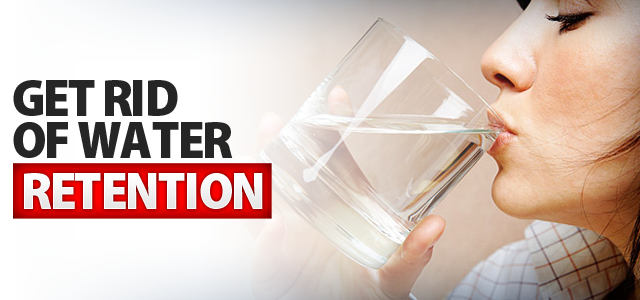
Water retention is also known as Fluid Retention. It signifies an abnormal accumulation of fluid in the circulatory system or within the tissues or cavities of the body. Water is found both inside and outside the body's cells. Water retention is a classic symptom of premenstrual syndrome (PMS). For most women, water retention is just a monthly bother — but in some cases, it can be severe enough to interfere with daily activities.
In order to control the water retention or Salutation for the water retention you should do the following:
- Drink 6 to 8 glasses of water daily.
- Cut back on the sodium in your diet.
- Eat a healthy, well-balanced diet that includes a lot of vegetables, grains and other high-fiber foods.
- Deficiencies in protein, calcium, magnesium and vitamins B1, B5 and B6 may also lead to problems with water retention.
- Get 20 minutes of physical exercise daily
- Elevate your feet and legs. Standing for too many hours or sitting all day with your feet on the floor may cause fluids to drain into your feet and legs, which causes swelling.
Look at a calendar if you are a woman who gets a monthly period

Precautions
- Cut down salt consumption.
- If you are overweight, then you need to lose your weight.
- Do Exercise and Walk on the regular basis.
- Raise the legs several times per day to improve circulation.
- Wear supporting stockings if the water retention occurs in your lower limbs.
- Not to sit/stand still for too long.
- Get up and walk about regularly when travelling by car, train, boat or plane.
- Avoid extremes of temperature, such as hot baths, showers, and saunas. Dress warmly if it is cold.
- Massage by a qualified masseuse.
SYMPTOMS
- Chest pain or pressure
- Coughing
- Difficulty in Breathing
- Inability to walk long distances
- Decreased body hair, especially in areas of swelling
- Discomfort or pain in the part of your body that is affected by swelling
- Reduced ability to move the part of your body that is affected by swelling
- Swelling in Body and Specially in Feet
- Skin changes in areas affected by swelling, including thickening and loss of elasticity
- Inability to urinate or reduced urination
- Unconsciousness
- Heart failure
- Hypertension
- Kidney disease (includes any type of kidney problem, such as kidney stones, kidney failure and kidney anomalies)
- Kidney failure
- Liver disease (includes any type of liver problem, such as hepatitis, cirrhosis and liver failure)


























































 Address 1
Address 1
